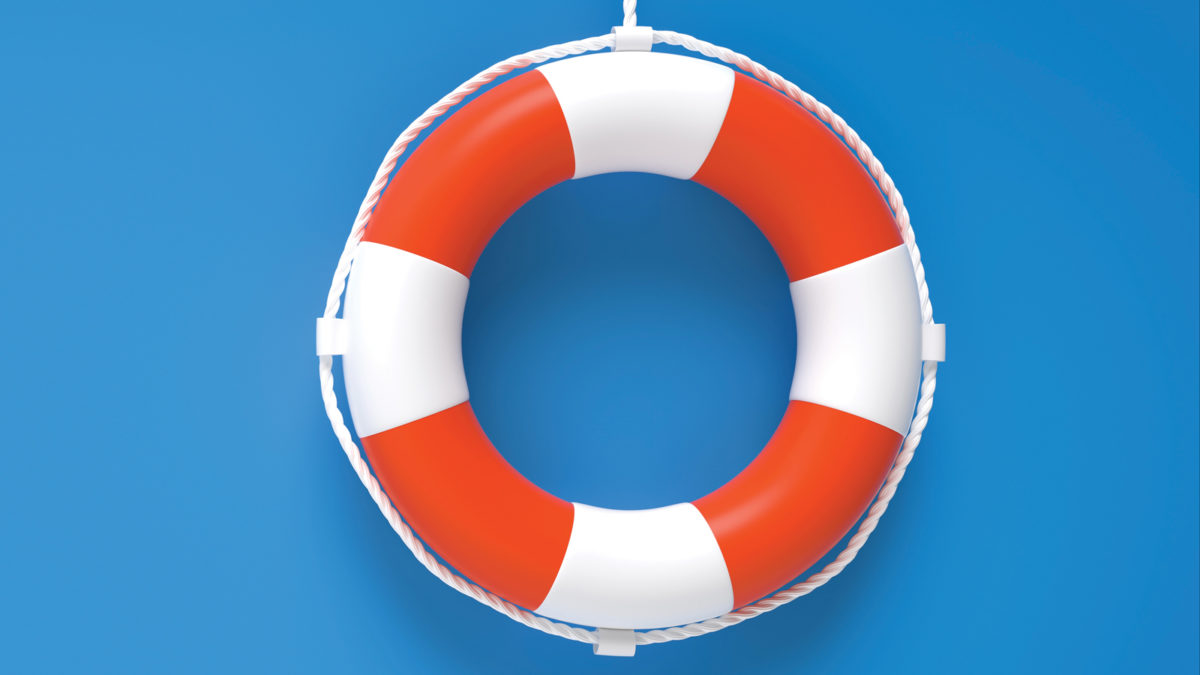
Alcoholism: A Cautionary Tale
November 2021

In honor of Colorado Lawyer’s 50th year in print, we’re looking back at some of our most memorable articles. Today we strike a more serious note as we recall one Colorado attorney’s personal struggle with alcohol. It’s billed as a cautionary tale, but it’s also a story about what we stand to gain if we accept help and begin again.
***
I have been asked to pen the cautionary tale that is the story of my life. I hope to highlight the fact that alcoholism is an insidious disease that the sufferer rarely admits to having until it is too late.
My Journey to Becoming an Alcoholic
I was born and raised in Colorado. Both of my parents were successful professionally. This is particularly true of my father, who was an AV-rated attorney, a founding partner of a prominent Denver law firm, and a notable political figure in Colorado. Throughout my childhood, I lived in what was a happy and healthy nuclear family. It was everything professionals tell us that a child needs. There was no alcoholic drama, no midnight moves, and no police visits.
After graduating from high school, I was accepted to the University of Denver School of Accountancy. There, I excelled academically and in extracurricular campus activities. Even though I was a heavy drinker during this period, I maintained my academic success while also working and being involved in other campus activities.
It was at this time that I realized that I really enjoyed drinking alcohol. I was thoroughly convinced that my drinking habits were normal in every way. This was supported by the fact that I had no negative consequences related to my drinking. While I drank more than my peers, I saw no reason to be concerned or to attempt to limit my alcohol consumption Besides, isn’t college a time to study hard and party hard? That seemed to be the recipe for being successful and not boring.
I graduated with a degree in accounting and passed the CPA exam. I also applied to and was accepted by the University of Denver Sturm College of Law. Again, I had no trouble keeping up with the academic rigors while still working and maintaining my drinking lifestyle. If anything, law school surrounded me with more people with similar drinking habits. It seemed like every event on campus boasted free liquor. I knew that the practice of law was going to be a good fit for me.
During this time, a few of my friends raised the possibility that my drinking was somewhat abnormal. I easily brushed aside these warnings, as I still hadn’t experienced any real consequences from my drinking. I always believed that if my drinking got bad enough, I could simply deal with it then.
The Abyss
I graduated from law school, passed the bar, and went to work for a prominent Denver personal injury law firm. During this time, I also excelled professionally. This firm was highly competitive and quite busy. As a result, drinking during the day was not an option, which might have delayed some of the alcoholic consequences I was about to encounter. Eventually, the inevitable happened: I had the opportunity to start my own firm. With my name on the door and no one to supervise me, I was back to drinking the way I wanted to.
As I said earlier, I was raised in a good and moral family. I knew right from wrong, and I aspired to being a lawyer’s lawyer. Not only did I want to follow the code of ethics, I intended to be an example of it.
Having watched others struggle with drinking, I knew that I needed to be careful not to fall into any of the same traps. Accordingly, I gave myself certain rules that would, in theory, prompt me to stop drinking.
These rules included never driving drunk with my kids in the car (I never had a rule about driving drunk alone), never going to court drunk, and never meeting with a client drunk. Each one of these rules ultimately succumbed to my alcoholism. Each time I broke one of these rules, I fabricated a brilliant excuse why I really didn’t break the rule and that it shouldn’t count. In my heart, however, I knew drinking was getting to be a problem.
My drinking was taking on an ever larger priority in my life. Whereas I once drank at lunch only occasionally, it eventually became the norm. Drinking at lunch eventually became drinking all afternoon and not going back to work. The drinking began to catch up with me and I started to suffer consequences. I missed some deadlines for clients and caused them harm. I convinced myself that it was a bad tickler system or a substandard employee that caused this. Again, I couldn’t allow alcohol to be the reason or else I would have to consider stopping—something I was still unwilling to do.
This, of course, brought the Office of Attorney Regulation into my life. They also questioned whether I had a drinking problem. They were concerned that my drinking resulted in my failing my clients. They suggested that I meet with a representative of the Colorado Lawyer’s Health Program (CLHP). They told me that if I had a drinking problem, there were people there who could help. I did as they instructed.
If only I would’ve accepted the help that was offered. The problem, you see, is that I am a lawyer. As such, I have a highly developed ability to explain and to craft a convincing argument. Unfortunately, I was able to make a very convincing case to myself why I was not an alcoholic.
Looking back, the reasoning was nothing less than absurd. Needless to say, I pushed aside all help and continued my drinking behavior.
There eventually came a time when I needed to drink but was out of money. I knew there was a place where I could get money, but this was a behavior that was so distasteful and abhorrent to me that I couldn’t believe I was considering it. Unfortunately, alcohol takes away the part of my reasoning that makes me care about the consequences of my actions.
I took client money from my trust account.
I was going to put it back very soon. I knew I had some fees coming in within the next week and would be able to replace it. I never intended to actually keep it. As with any other behavior like this, once I crossed the line the first time, it became easier and easier to do. My continual borrowing from my trust account, stealing from one client to pay another, and continuing to use my clients’ money to cover my expenses and my continuing need for alcohol eventually led to the collapse of this Ponzi scheme of a trust account.
By the time the trust account checks began bouncing, I was upside down in my trust account by more than $50,000. This time, the Office of Attorney Regulation acted swiftly with regard to my license. I was disbarred.
One might presume disbarment was the wake-up call I needed to seek help for my drinking. It wasn’t. I was still able to convince myself that drinking wasn’t a problem for an additional three years. At the end of my drinking days, I was sleeping in a friend’s basement on a pad on the floor, consuming half a gallon of vodka a day. I had no job and no friends. My family had left me. No one wanted to continue to watch this self-destruction.
The Road to Recovery
Eventually, three friends did intervene and got me to treatment. During treatment, I finally met someone who understood the disease—who understood that it was not a weakness of character or a moral failing. As I mentioned earlier, I passed the CPA and the bar exam. I graduated from undergraduate and law school while working full-time. If overcoming alcoholism is simply a matter of willingness or mental control, I would’ve had no trouble defeating this. But I was helpless.
As a result of treatment, I was introduced to Alcoholics Anonymous. There, I found a program that provided me with the means to put an end to my alcoholism. From that time, more than 13 years ago, I have not struggled with alcohol or found it necessary to take a drink or to consume any mind-altering drug.
For anybody with a drinking problem, the promise of never having to drink again is a sufficient enticement to try the program. However, I can also say that the program has given me a new way of looking at life and, as they say, a new way of living.
Before I was disbarred, and even while I had every apparent success as an attorney, I hated practicing law. I didn’t trust other attorneys, I had disdain for judges, and my clients were terrible people. There is nothing about the practice that I found redeeming or invigorating. It was a paycheck, and a big one.
Thanks to Alcoholics Anonymous and my new attitude toward life, I was able to petition for and get readmitted to the practice of law in Colorado. I can now say that the practice of law is the most enjoyable, satisfying, and rewarding endeavor imaginable. I now have a deep respect for other attorneys, as well as an admiration and appreciation for judges. I look at every client as an opportunity to be of service and to help someone in need.
I didn’t want to get help for my alcoholism because I truly believed that drinking was the only thing that made enduring the life I had created for myself possible. I learned early on that anything fun and exciting involved alcohol, and I led myself to believe that the elimination of alcohol would subject me to a boring life.
If you are having trouble with alcohol, drugs, or any other addiction, you might be convinced of the same thing. As one who has been there, I can assure you that that is not true. Fortunately, in Colorado we have resources to help. I can only imagine what my life would’ve been like if I had accepted the help first offered to me. Although CLHP no longer exists, a fully funded, broad-brush program began here in January 2012: the Colorado Lawyer Assistance Program (COLAP, www.coloradolap.org).
Another program, Colorado Lawyers Helping Lawyers (CLHL, www.clhl.org) provides peer support and group meetings. Both programs are independent and confidential. Of course, there is also Alcoholics Anonymous. They can be found online at www.aa.org and in the phone book.
You don’t need to follow the path that I took. If you are having issues with addiction, you can change your life now. There are many people in the legal profession who are here to help.
This article was written anonymously in accordance with the Alcoholics Anonymous principle of anonymity and is not endorsed or approved by AA.
The problem, you see, is that I am a lawyer. As such, I have a highly developed ability to explain and to craft a convincing argument. Unfortunately, I was able to make a very convincing case to myself why I was not an alcoholic.


